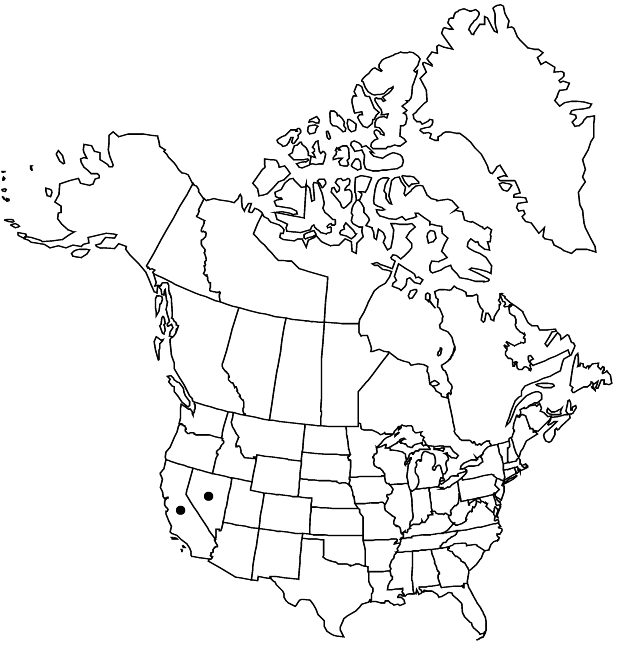Ribes lasianthum
Pittonia 3: 22. 1896 ,.
Plants 0.5–1 m. Stems spreading, puberulent; spines at nodes 1–3, 5–10 mm; prickles on internodes absent. Leaves: petiole 0.3–0.6 cm, pubescent; blade roundish, 3–5-lobed, cleft 1/2 to midrib, 1–2 cm, base broadly truncate to cordate, surfaces glandular-puberulent, lobes somewhat cuneate, blunt, margins few-toothed, apex blunt. Inflorescences erect, 2–4-flowered racemes, 1.5–2 cm, axis villous and pubescent, flowers evenly spaced. Pedicels not jointed, 0.1–0.5 mm, villous; bracts broadly ovate, 1–2 mm, pubescent. Flowers: hypanthium yellowish green, narrowly tubular, 4–5 mm, pubescent; sepals not overlapping, reflexed, becoming erect, yellow, narrowly oblong, 2 mm; petals connate, erect, yellow, obovate-cuneate, not conspicuously revolute or inrolled, 1–2 mm; nectary disc not prominent; stamens as long as petals; filaments linear, 0.5–1 mm, glabrous; anthers yellow, oval, 0.5–1 mm, apex blunt; ovary glabrous or with sparse hairs; styles completely connate, 6–7 mm, glabrous. Berries palatability not known, red, globose, 6–7 mm, glabrous.
Phenology: Flowering May–Jul.
Habitat: Open, rocky areas in forests
Elevation: 1500-3100 m
Discussion
Ribes lasianthum occurs in the Transverse Ranges and Sierra Nevada of California and western Nevada. The petals and stamens are closely appressed and form a tube.
Selected References
None.
